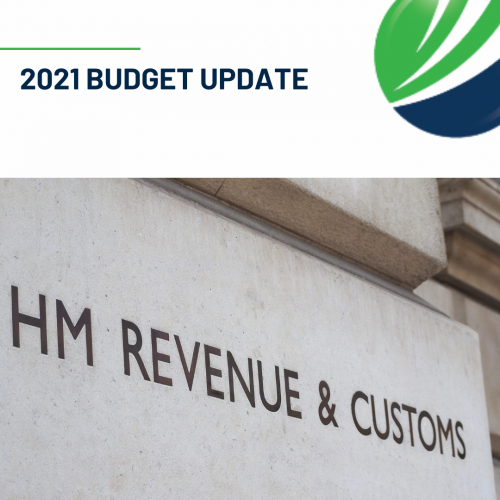2021 Autumn budget update

posted 31st October 2021
IMPACT FOR INDIVIDUALS
National Insurance
From April 2022 the rate of National Insurance contributions across all classes (except class 2 and 3) will change for one year. The amount of the contribution will increase by 1.25% which will be spent on the NHS and social care across the UK.
Pensions
With effect from 6 April 2028 the earliest age at which most pension savers can access their pensions without incurring an unauthorised payments tax charge will increase from 55 to 57.
Capital gains tax annual exempt amount (after personal allowance)
These are frozen at £12,300 for individuals and £6,150 for trusts.
Capital Gains Tax (CGT): property payment window
From 27 October 2021 the deadline for residents and non-residents to report and pay CGT after selling UK residential property increases from 30 days after the completion date to 60 days. This will be a welcome measure for taxpayers, giving them sufficient time to report and pay CGT.
Dividend allowance
The tax-free dividend allowance is unchanged at £2,000. The dividend tax rates are increased by 1.25% for each category of taxpayers for 2022 -23.
Making Tax Digital (MTD)
MTD for ITSA will be introduced from 6 April 2024. This impacts sole traders and landlords, with income over £10,000. General partnerships will not be required to join MTD for ITSA until 6 April 2025.
Self-Employment Income Support Scheme (SEISS) and other support
The amounts received through the support schemes are taxable income and is required as a separate entry on tax returns.
Losses
Trading losses will have more flexibility to carry them back over three years. This applies only for losses incurred by companies for accounting periods ending between 1 April 2020 and 31 March 2022, and for individual for trade losses of tax years 2020/21 and 2021/22.
Entrepreneurs’ relief
The lifetime limit on gains eligible for entrepreneurs’ relief is £1m for qualifying disposals.
Inheritance tax (IHT)
The nil-rate band remains at £325,000 frozen until 2026.
Powers
HMRC will have new powers relating to offshore tax avoidance schemes, allowing them to target the UK based entities which act as go-betweens. The rules would allow HMRC to impose additional penalties on UK facilitators, apply to the courts for freezing orders to prevent funds being dissipated and for winding up orders against companies or partnerships ‘operating against the public interest’.
Time to pay
Taxpayers can set up a payment plan online via GOV.UK.
Pensions
The pension lifetime allowance will remain at its current level of £1,073,100 until April 2026.
IMPACT FOR BUSINESS
National Insurance
From April 2022 the rate of National Insurance contributions increases for secondary Class 1, 1A and 1B (paid by employers). The amount of the contribution will increase by 1.25% which will be spent on the NHS and social care across the UK.
Corporation tax
The corporation tax rate will remain at 19% but from April 2023 the applicable corporation tax rates will be 19% and 25%. Businesses with profits of £50,000 or below will still only have to pay 19% under the small profits rate.
Enhanced capital allowances: super deduction
This introduces increased reliefs for expenditure on plant and machinery. For qualifying expenditures incurred from 1 April 2021 up to and including 31 March 2023, companies can claim in the period of investment:
• a super-deduction providing allowances of 130% on most new plant and machinery investments that ordinarily qualify for 18% main-rate writing-down allowances
• a first-year allowance of 50% on most new plant and machinery investments that ordinarily qualify for 6% special rate writing down allowances
Annual Investment Allowance (AIA)
Annual Investment Allowance of £1m was due to end by December 2021. This will now be extended until 31 March 2023. Businesses will therefore have longer to consider bringing forward capital investments of between £200,000 and £1m, accessing upfront support by claiming tax relief on such costs in the year of investment.
Rates
Business rates in England will move to a more frequent revaluation cycle of every three years from 2023. A new temporary relief of 50% (up to £110,000) will be introduced for retail, hospitality and leisure properties in 2022/23. The rate multiplier will also be frozen for 2022/23.
Multipliers, revaluations and reliefs for the devolved nations remain subject to policy decisions by devolved governments.
From 2023 a new rates investment relief will be available to ensure qualifying property improvements do not result in a higher rates liability for a year following improvements, to support investments in green technologies, improvements to productivity and expansion of premises.
VAT
The VAT registration and deregistration thresholds will not change for a further period of two years from 1 April 2022.
The reduced rate of VAT of 12.5% ends on 31 March 2022 for the hospitality sector returning to the standard rate of VAT of 20% from 1 April 2022.
Losses
Trading losses will have more flexibility to carry them back over three years. This applies only for losses incurred by companies for accounting periods ending between 1 April 2020 and 31 March 2022, and for individual for trade losses of tax years 2020/21 and 2021/22.
Employment allowance reform
The allowance is £4,000 but continues to be limited to employers with an employer NIC bill below £100,000 in the previous tax year.
R&D
SMEs applying for R&D tax credits will be eligible to a maximum of £20,000 in repayments per year plus three times the company’s total PAYE and NIC liability.
LANCING COTSWOLD LIMITED LEGAL NOTICE
This should not be used as a definitive guide since individual circumstances may vary. Specific advice should be obtained, where necessary.


